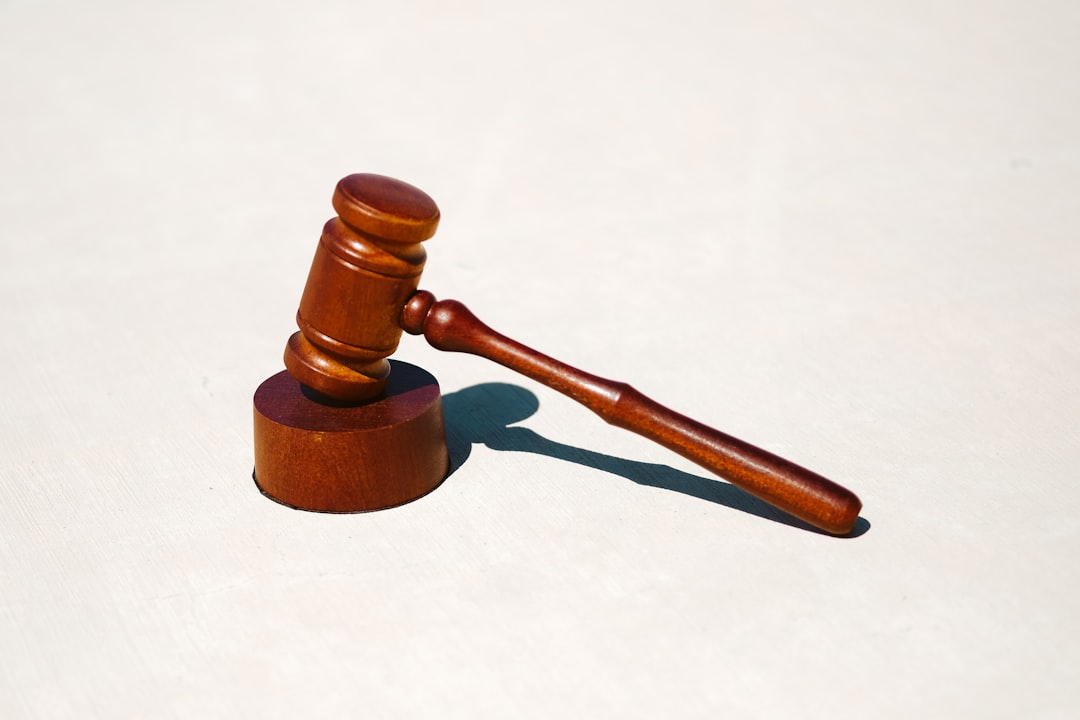In Vermont, robocalls and spam calls are common but illegal. Residents can protect themselves by consulting a Robocall Lawyer or Spam Call Attorney who can guide FCC complaints or legal action against offenders. Filing a complaint involves identifying violations, gathering evidence, and submitting it online at fcc.gov/complain. Specialized attorneys help strengthen cases and ensure successful resolutions.
Tired of relentless robocalls and spam calls in Vermont? You’re not alone. Understanding your rights and knowing when to file a complaint with the FCC can be empowering. This comprehensive guide walks you through the process step-by-step, from identifying violators as a Robocall Lawyer or Spam Call Attorney in Vermont to gathering evidence and what to expect afterward. Discover how to take back control with expert advice tailored for Vermont residents facing these pesky intrusions.
Understanding Robocalls and Spam Calls in Vermont

In Vermont, like many states, robocalls and spam calls are a common nuisance. These automated phone calls, often promoting products or services, can be illegal if they violate state or federal laws. A robocall lawyer Vermont or spam call attorney Vermont can help you understand your rights and take action against these calls.
Vermont has specific regulations regarding robocalls and spam, aiming to protect residents from unwanted and deceptive phone marketing. If you receive excessive or illegal robocalls, a robocall law firm Vermont or spam call law firm Vermont can guide you in filing a complaint with the Federal Communications Commission (FCC) or taking legal action against the perpetrators. Understanding your rights and the applicable laws is crucial when dealing with these intrusive calls.
When to File a Complaint with the FCC

In Vermont, residents often face unwanted robocalls and spam calls, which can be frustrating and intrusive. Knowing when to file a complaint with the Federal Communications Commission (FCC) is crucial. The FCC has established guidelines to protect consumers from malicious or deceptive calls, including those that promote fraudulent schemes or violate privacy rights.
If you have received a robocall or spam call that you believe violates federal law, it’s time to take action. A Robocall Lawyer or Spam Call Attorney in Vermont can guide you through the process of filing a complaint with the FCC. These legal experts are well-versed in navigating the complexities of telecommunications laws and can ensure your rights are protected. By reporting such calls, you contribute to a safer and more transparent communication environment for all Vermont residents.
The Filing Process: Step-by-Step Guide

Filing a complaint with the Federal Communications Commission (FCC) regarding robocalls or spam calls is a straightforward process, but understanding each step is crucial to ensuring your voice is heard. Here’s a step-by-step guide for Vermont residents seeking legal recourse against unwanted phone calls:
1. Identify the Violation: First, determine if the call constitutes a violation of federal law. The Telephone Consumer Protection Act (TCPA) prohibits robocalls and spam calls to wireless and landline telephones without prior express consent. If you believe your rights have been infringed upon by a Vermont-based robocall or spam call, proceed with filing a complaint.
2. Gather Evidence: Collect all relevant information about the offensive call(s). This includes the caller’s phone number, date, time, and a detailed description of the message left if applicable. You can use this evidence to support your case. If possible, record future robocalls for additional proof.
3. Visit the FCC Complaint Center: File your complaint online through the FCC’s Consumer Complaint Center at fcc.gov/complain. This platform is user-friendly and allows you to detail your experience, including specific information about the robocall or spam call. You can also choose to receive updates on the status of your case.
4. Consult a Robocall Lawyer Vermont: If your complaint involves complex issues or you’re seeking significant damages, consider hiring a specialized Spam Call Law Firm Vermont or Robocall Attorney Vermont. These legal professionals can guide you through the process, ensuring your rights are protected and providing expert advice tailored to Vermont’s laws and regulations.
5. Follow Up: After filing your initial complaint, keep track of any updates from the FCC. They may require additional information or provide a resolution to your case. If you engage an attorney, they will handle follow-up communications on your behalf.
Gathering Evidence and Documentation

When filing a complaint with the FCC regarding robocalls or spam calls in Vermont, gathering evidence and documentation is a crucial step. Start by collecting all relevant information about the calls you received, including dates, times, and detailed notes on the content of the messages. Save any recorded voicemails or texts as digital evidence. Additionally, retain any materials that indicate the source of the calls, such as call logs, phone bills, or advertisements from which the caller might be associated.
Consider consulting with a Robocall Lawyer Vermont or Spam Call Attorney Vermont who can guide you in gathering and preserving this evidence effectively. These legal professionals understand the Spam call law firms Vermont and robocall laws and can help ensure that your case is strong. By documenting everything meticulously, you increase your chances of a successful complaint against unwanted Robocall Vermont or spam calls, potentially leading to relief from these intrusive communications.
What to Expect After Submitting Your Complaint

After submitting your complaint to the FCC regarding robocalls or spam calls in Vermont, it’s normal to feel a mix of anticipation and concern about what will happen next. The FCC receives thousands of complaints annually, so there may be a delay in processing yours. Within a few weeks, you should receive an acknowledgment from the FCC, confirming they have received your complaint. This is the first step towards resolution.
In response to your complaint, the FCC will investigate the issue, contacting the phone number or organization responsible for the robocalls or spam calls. They may also reach out to you for more information or clarification if needed. Depending on the outcome of their investigation, the FCC has various options, including sending a warning letter, fining the offending party, or taking legal action. If your issue involves a robocall lawyer Vermont or spam call law firm Vermont, engaging an attorney specializing in these matters can help expedite the process and ensure your rights are protected throughout the complaint resolution with the FCC.






